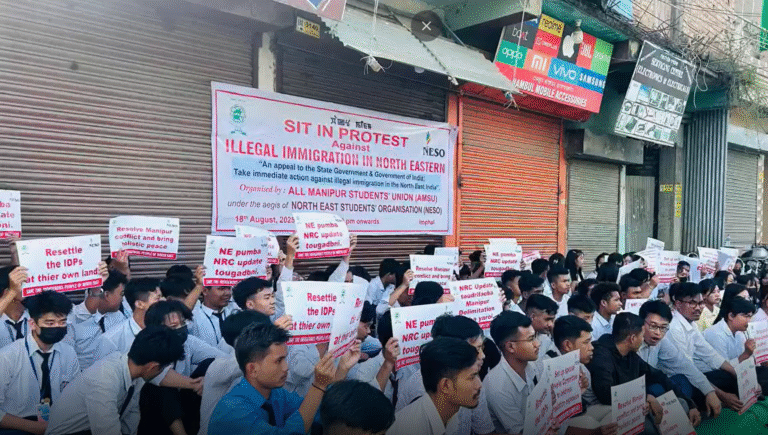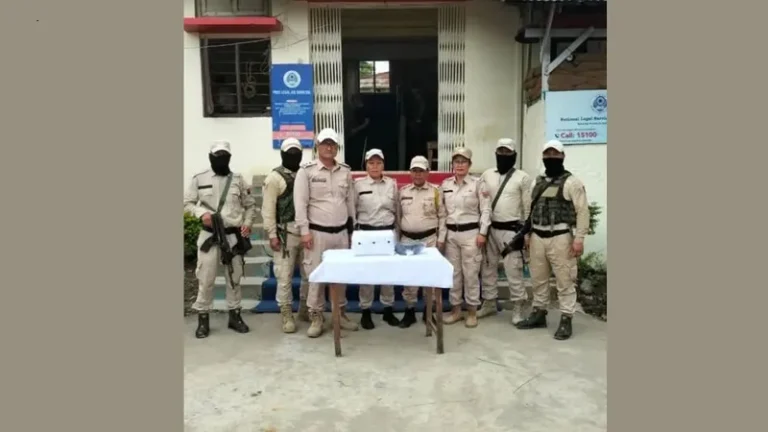The Fight Against Illicit Poppy Cultivation in Manipur
Summary Section
Authorities in Manipur, led by the Assam Rifles and state police, recently ramped up their efforts to eradicate illegal poppy cultivation in the state. As part of their ongoing war on drugs, multiple acres of poppy fields have been destroyed, especially in the hill regions of the state. This initiative aligns with Manipur’s broader anti-narcotics campaign, which has seen significant community support and government backing to combat the drug trade, curb addiction rates, and protect the region’s fragile ecosystem.
Detailed Article
If you’ve been following the developments in Manipur, you’ll know this state isn’t just about serene landscapes—it’s also grappling with a drug menace deeply rooted in illegal poppy farming. Recently, the Assam Rifles, in collaboration with state police and other agencies, stepped up their mission to destroy poppy plantations as part of the government’s “War on Drugs.” But why does this matter so much, and what are the broader implications of these efforts?
What’s the Big Deal About Poppy Cultivation?
Poppy plants, while aesthetically pleasing, are notorious for their role in producing opium—a key ingredient in heroin. The narcotics trade associated with opium not only fuels organized crime but also devastates communities through addiction, poverty, and violence. In Manipur, poppy cultivation has become a thorny issue, with widespread illegal farming in remote areas.
To put it into perspective, since 2017, authorities have destroyed over 19,000 acres of illegal poppy cultivation in the state. In 2023 alone, over 3,000 acres of poppy fields were cleared. The recent operations are part of this larger drive, emphasizing the state’s commitment to cracking down on this illegal trade
Manipur’s War on Drugs: More Than Just Poppy Fields
The War on Drugs in Manipur isn’t only about destroying poppy fields; it’s about creating a ripple effect. By targeting the cultivation stage, authorities aim to choke the supply chain at its root. Beyond raids and crop destruction, the campaign involves legal actions against landowners, rehabilitation programs for addicts, and alternative livelihood opportunities for those previously involved in farming poppy plants.
Manipur’s Chief Minister, N. Biren Singh, has been vocal about the government’s zero-tolerance approach. The administration has introduced stringent measures, including the Narcotics Affairs Border (NAB) Task Force, to ensure a coordinated response to the issue. Meanwhile, community engagement remains a cornerstone, with local tribes and civil societies extending their support to end this menace
Environmental and Social Implications
Apart from the direct impact on drug trade networks, illegal poppy cultivation poses significant environmental challenges. The slash-and-burn techniques often employed to clear land for poppy farming degrade soil quality, increase deforestation rates, and threaten biodiversity in sensitive hill regions. By uprooting these plantations, the authorities are also safeguarding the environment, which is crucial for the region’s agriculture-dependent communities.
Socially, addressing this issue head-on can reduce addiction rates and crime levels, fostering healthier and more stable communities. The destroyed poppy fields are being replaced with legitimate crops under state-sponsored agricultural programs, ensuring economic security for farmers.
Challenges Along the Way
While the initiative is commendable, the road ahead isn’t without hurdles. The isolated geography of poppy-growing areas often makes law enforcement difficult. Additionally, the lucrative nature of the drug trade means there’s strong resistance from vested interests. Addressing poverty and lack of opportunities, which often push individuals into illegal farming, remains a critical challenge for authorities.
Why Should You Care?
If you’re wondering why this matters beyond Manipur, consider this: tackling drug production at its source reduces the global drug supply chain. Moreover, the campaign sets a precedent for other regions grappling with similar issues, proving that a focused, community-backed approach can yield results.
Final Thoughts
Manipur’s crackdown on poppy farming is a shining example of how local action can have global implications. While challenges remain, the progress made so far is encouraging. With continued efforts and public support, the War on Drugs in Manipur could pave the way for a cleaner, greener, and healthier state.
FAQs
- What are poppy plants used for?
Poppy plants are primarily used to produce opium, which is processed into drugs like heroin. - Why is poppy cultivation a problem in Manipur?
Illegal poppy farming fuels drug trafficking, addiction, and environmental degradation in the state. - What actions are being taken by the authorities?
Authorities are conducting raids, destroying crops, and prosecuting landowners involved in illegal cultivation. - Are there alternatives for farmers involved in poppy farming?
Yes, the government promotes alternative crops and provides agricultural support to farmers transitioning away from poppy cultivation. - How does this initiative impact the global drug trade?
Reducing opium production at its source disrupts the drug supply chain, potentially reducing global heroin availability.


